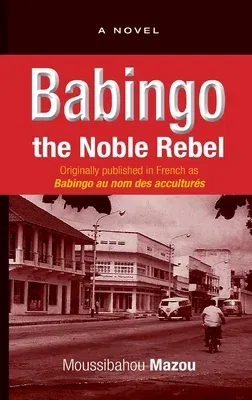In Pointe-Noire of the 1950's lived Paul Makouta, a "civilized" and
westernized native who was very proud of communicating exclusively in
French with Madeleine Mamatouka, his wife, Alex his only son, and the
other children of his household. Under no circumstance did Makouta allow
the members of his family speak the language of Metropolitan France with
the slightest trace of a Bantu accent. Again, anyone who dared speak
Kituba, an indigenous language, with the family's domestic staff was
liable to severe reprimand.
Clearly, the father's intransigence was at odds with the communicative
practices in the neighborhood and of children commuting daily to school.
And it was only natural for Tessa, a fellow pupil from the neighborhood,
to successfully convince her teenage friend, Alex Babingo, of the
absurdity of Makouta's directive. Little did Alex Babingo realize that
his initial acceptance of the irrationality of the father's prohibition
in colonized Congo was only the start of a trajectory which, from the
other side of the world, would impel his return to the very roots of his
culture and ancestral traditions in the now independent
Republic of Congo or Congo-Brazzaville. Babingo, the Noble Rebel is a
poignant and pulsating advocacy for the mainstreaming of indigenous
languages into the curriculum of African countries, not least those
belonging to the French-speaking world.


